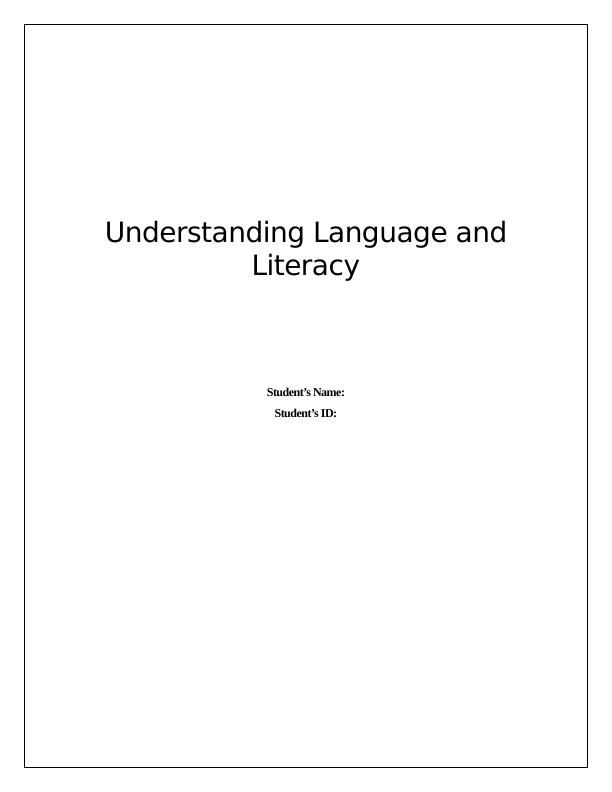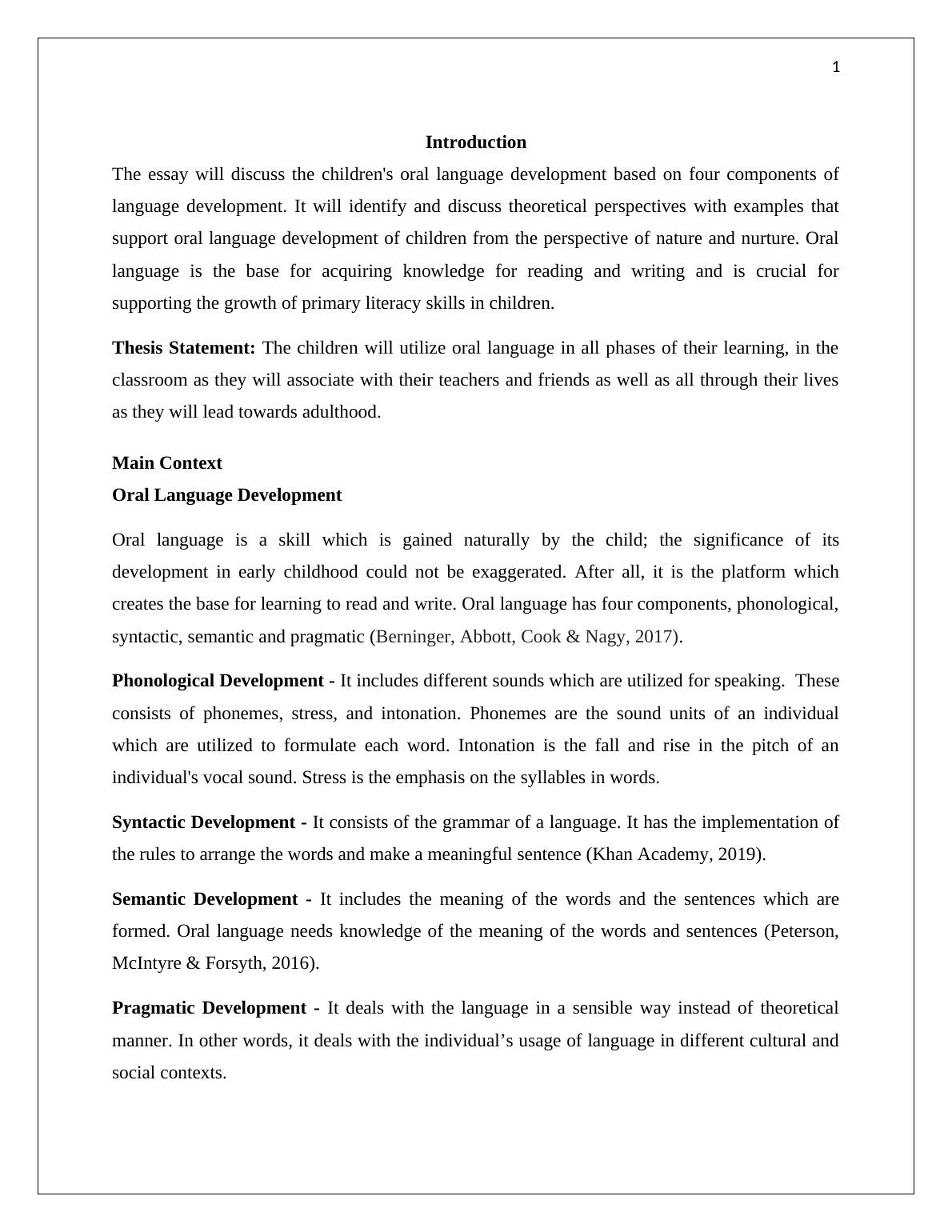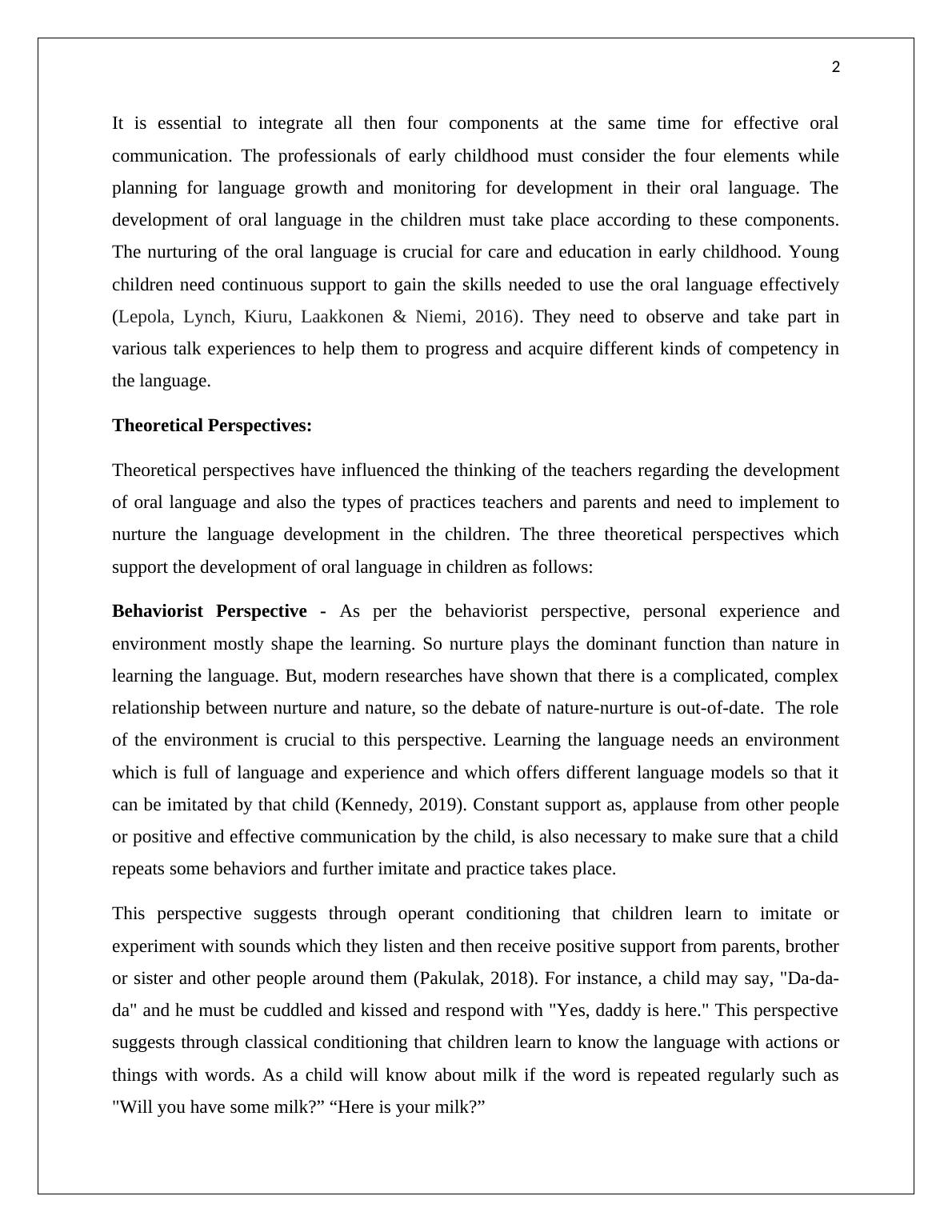Understanding Language and Literacy
Write an expository essay investigating an idea, evaluating evidence, and setting forth an argument concerning language development in early childhood and primary settings.
6 Pages1302 Words151 Views
Added on 2023-04-12
About This Document
This essay discusses the development of children's oral language and the theoretical perspectives that support it. It explores the four components of oral language development and emphasizes the importance of oral language in acquiring reading and writing skills.
Understanding Language and Literacy
Write an expository essay investigating an idea, evaluating evidence, and setting forth an argument concerning language development in early childhood and primary settings.
Added on 2023-04-12
ShareRelated Documents
End of preview
Want to access all the pages? Upload your documents or become a member.
Children's Oral Language Development and Language Rules
|5
|821
|68
Oral Language Development and the Impact of Children's Literature
|10
|3040
|72
EDU10002 Project 1B: Learning activity plan Assignment
|2
|1038
|158
The workplace and experience personal fulfillment
|6
|973
|19
Essay: children’s oral language development
|5
|1599
|1
EDU 10002 Understanding Language and Literacy
|4
|810
|306



